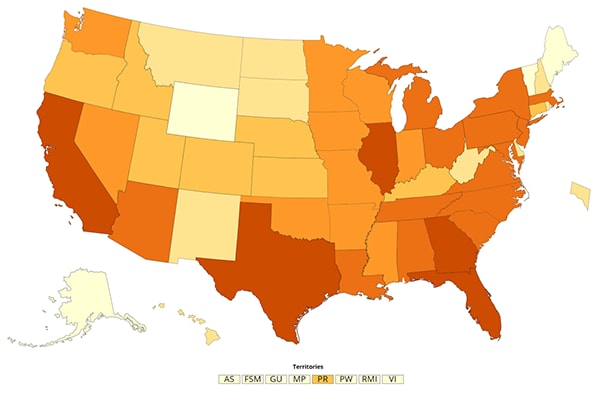Received this email from a friend? Sign up now |
|---|
September 8, 2020 This message includes updates on the COVID-19 response from CDC. The COVID-19 Outbreak is a rapidly evolving situation and information will be updated as it becomes available. |
|---|
Multisystem Inflammatory SyndromeMultisystem inflammatory syndrome in children (MIS-C) is a condition where different body parts can become inflamed, including the heart, lungs, kidneys, brain, skin, eyes, or gastrointestinal organs. Children with MIS-C may have a fever and various symptoms, including abdominal (gut) pain, vomiting, diarrhea, neck pain, rash, bloodshot eyes, or feeling extra tired. We do not yet know what causes MIS-C. However, many children with MIS-C had the virus that causes COVID-19 or had been around someone with COVID-19. |
|---|
Health Department-Reported Cases of MIS-C in the United StatesSince mid-May 2020, CDC has been tracking reports of MIS-C, a rare but serious condition associated with COVID-19. MIS-C is a new syndrome, and many questions remain about why some children develop it after a COVID-19 illness or contact with someone with COVID-19, while others do not. As of September 3, 2020, CDC has received reports of 792 confirmed cases of MIS-C and 16 deaths in 42 states, New York City, and Washington, DC. Additional cases are under investigation. |
|---|
COVID-19 Travel Recommendations by DestinationCDC lists countries by COVID-19 High Risk, Moderate Risk, and Very Low Risk. |
|---|
Considerations for Restaurants and BarsAs restaurants and bars resume operations in some areas of the United States, CDC offers the following considerations for ways in which operators can protect employees, customers, and communities and slow the spread of COVID-19. |
|---|
Interim Guidance for Rapid Antigen Testing for SARS-CoV-2Antigen tests can be used in a variety of testing strategies to respond to the COVID-19 pandemic. This interim guidance is intended for clinicians who order antigen tests, receive antigen test results, and/or perform point of care testing, as well as for laboratory professionals who perform antigen testing in a laboratory setting or at the point of care and report those results. |
|---|
Coronavirus Disease 2019 (COVID-19) in the U.S. |
|---|
As of September 8, 2020 In the United States, there have been 6,287,362 confirmed cases of COVID-19 detected through U.S. public health surveillance systems in 50 states and the District of Columbia, Puerto Rico, Guam, the Northern Marianas Islands, and U.S. Virgin Islands. CDC provides updated U.S. case information online daily. |
|---|
|
|---|

